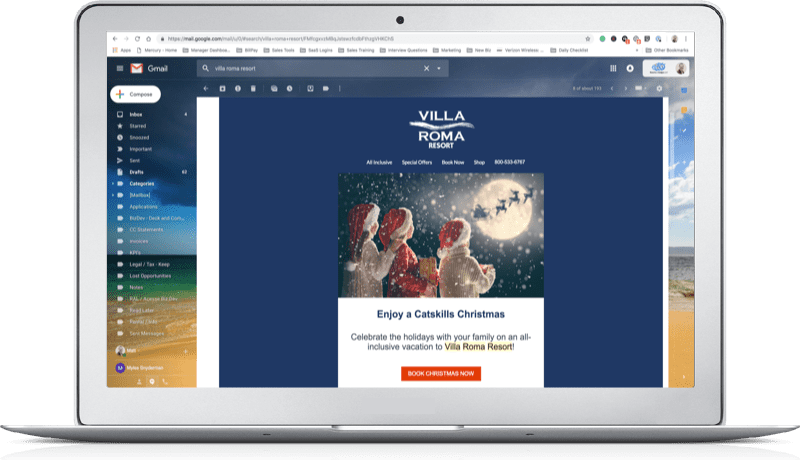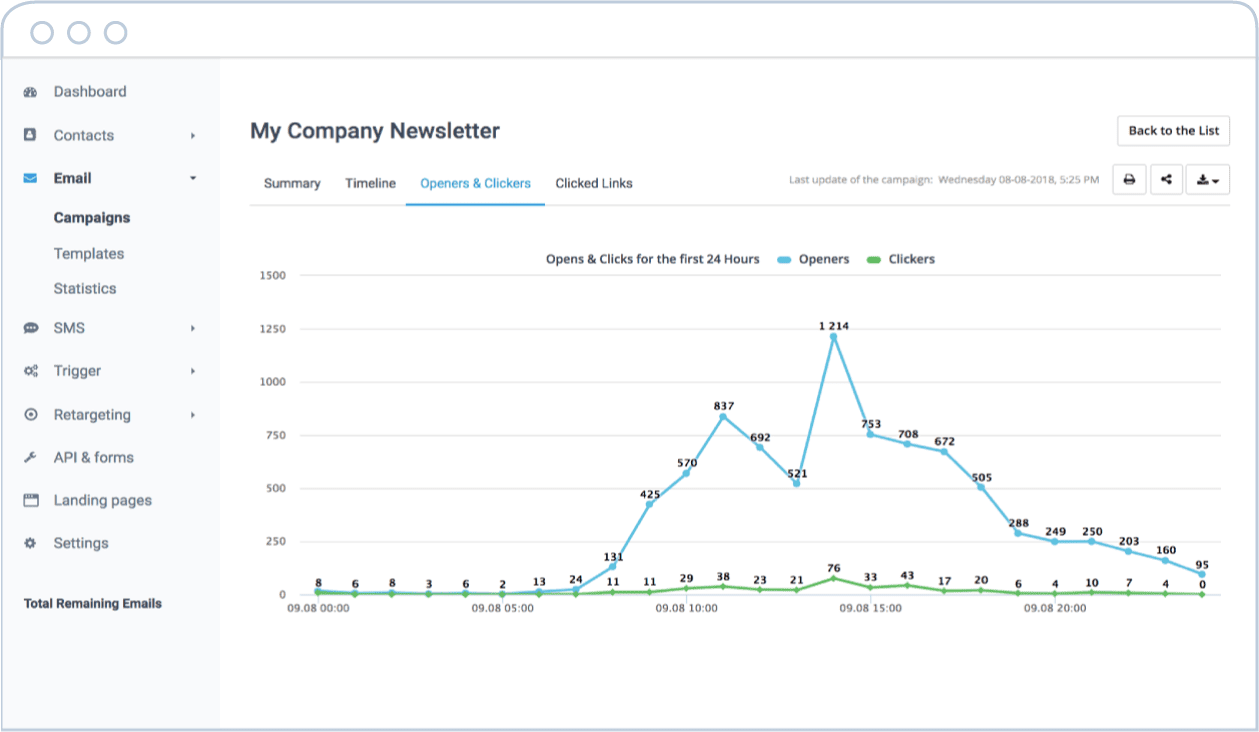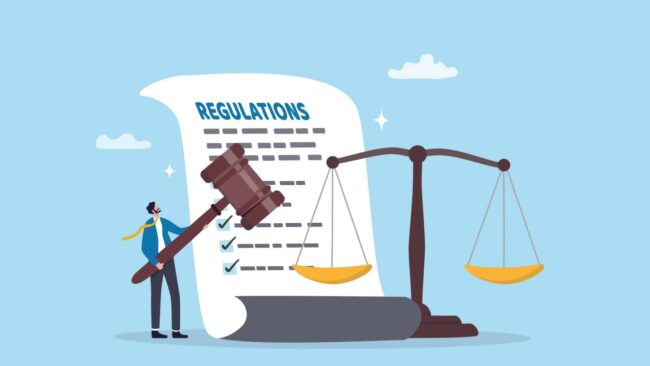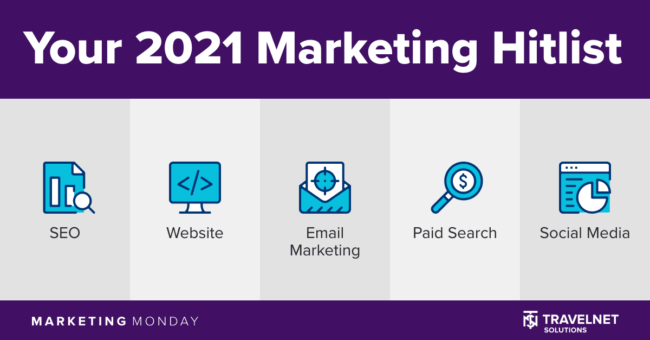Quick Guide to Email Nurturing

To build a sustainable and profitable business in the travel & hospitality industry today, you need to be using email to nurture relationships with past and future guests.
Spending time engaging with your guests and followers on social media is beneficial, making phone calls is crucial, but email is an absolute must. It’s one of the best ways to reach, nurture, and segment your audience.
Consider the facts:
- 78% of marketers have seen an increase in email engagement over the last 12 months.
- 73% of millennials prefer communications from businesses to come via email.
- Marketers who use segmented campaigns note as much as a 760% increase in revenue
- 99% of consumers check their email every day
As a property manager, it’s your job to take advantage of the opportunities that email marketing presents for your business and reservations team.
To put yourself on the right path toward developing and executing on an email marketing strategy that helps you drive more reservations and more profit for your property this year, follow these 6 tips when sending emails to leads:
Tip #1: Make the Right First Impression
When it comes to sending cold or even warm emails, first impressions mean everything. It’s important to remember that the average person is getting inundated with emails from all types of businesses and brands on a daily basis. The last thing they want is another sales email from someone on your team.
To increase the effectiveness and response-rates of the emails your team is sending, help your marketing team understand how to make the right first impression, and why it matters so much.
 Here are a few recommendations that can help when you’re ready to train your team:
Here are a few recommendations that can help when you’re ready to train your team:
- Recommendation #1: Personalize every email as much as possible. You have to build automation into your email marketing efforts, but if you don’t take the time to personalize, it won’t do you much good in the end. When you email a lead for the first time, use as much personal and specific information as possible (name, location, any other information you collected when your lead filled out a form) to grab attention and drive a response.
- Recommendation #2: Focus on asking questions and being helpful. When you first reach out to a lead, your goal should be to come across as helpful to them. To position yourself in that way, start by asking questions (ex. What are you looking for exactly? What have you looked at already? What type of trip are you going on? What experiences are you hoping to have while you’re on your trip, etc).
- Recommendation #3: Avoid using sales-speak and being overly promotional. Don’t be too pushy in your initial email to a lead. Start a conversation, engage authentically, and build trust with the people you want to ultimately convert. There’s a time and place for making the sale or pitch, and it’s definitely not in the first exchange you have with a contact.
The first email you send sets the tone for the entire relationship you’ll have with a lead. Don’t miss out on the opportunity to impress, stand out, and position yourself as someone worth talking to.
Tip #2: Understand Who Your Leads Are
In order to get any sort of return from your email outreach efforts, you need to constantly be trying to figure out who your leads are, and where they are in the buyer’s journey. Initially, you might discover information about your leads from the answers they provide in your website forms, but through follow-up conversations on the phone and through your outreach efforts, you can slowly start building a more complete profile of every lead you’re trying to nurture. You can use a tool like Track to store every piece of information about your lead—information that you want to recall and use throughout the sales process.
By gaining a better understanding of who your lead is, you can categorize leads based on priority or likelihood that they will convert, and also decide the best way to interact with and sell to them.
Here are some examples of information you should know about your leads in order to build a stronger relationship with them over time:
- Basic information (name, age, birthday, address, phone, job title, etc.)
- Interests relating to travel (what they like to do when they travel, what they hate, types of attractions or trips they like, etc.)
- General hobbies and interests (information that you can use to personalize messages and make stronger connections in future email campaigns to them)
- Amenities that they care most about
- Any obstacles keeping them from booking a reservation (time of year, cost, etc.)
Once you have information like this in hand, building and nurturing relationships with potential guests becomes a lot easier. It also becomes easier to segment leads into different groups as mentioned above (priority, follow-up in 6 months, needs to see special pricing or a package, etc). This will help ensure that you spend time nurturing the right relationships with the right people at the right point in time.
Tip #3: Write Like a Human
To be effective with email, you need to write like a human. It might sound like a simple tip, but it’s something that a lot of people struggle with. We don’t always write in the same way that we speak. As a result, written messages can sometimes come across as cold, robotic, forceful, impersonal, or too stuffy.
The emails you or your team sends on behalf of your organization should look and sound professional, but they also need to feel like they are coming from an actual human being. So how do you do it?
Here are a few recommendations you can follow to sound more like an authentic, caring human being in your emails to leads:
- Read what you write out loud before hitting send. This is something that so few people take the time to do, but it really can make a big difference. Spend a few minutes reading out loud the email that you composed for a lead. If it sounds too robotic or salesy, or if it’s hard to read out loud naturally, you need to work on a second draft.
- Use a more conversational tone. Imagine that you are talking to a contact in person or over the phone. Keep this in mind when composing your email message.
- Don’t use cliche or overused phrases. Don’t use language that makes people groan, skim through your email, or close it entirely.
- Don’t try to be too clever or funny. Most of the time it just makes you come across as inauthentic, desperate, or worse of all, offensive.
- Use simple words and phrases. Don’t use complex language that might confuse your contacts or make them spend too much time trying to decipher what you’re actually trying to say. Keep it simple.
- Know your audience and your specific lead. Understand how your audience communicates and responds, and then go one step further and think about how every contact prefers to communicate. Adjust your email campaigns accordingly depending on the audience or person you’re writing to.
Remember: The people you’re emailing are already getting a lot of emails from other companies looking for their business. Stand out by having real conversations with people. Show them that you care, and that you’re not just desperate to meet your quota for the month.
Tip #4: Always Focus on Providing Value
Your goal when sending email campaigns is obviously to ultimately persuade leads to convert, but in order to be effective, your leads need to feel like you’re more interested in providing value to them.
Your leads need to trust you before they buy from you, so you need to be someone who can answer all their questions, and work to eliminate any obstacles preventing them from booking their reservation with you.
 There are a number of ways you can build trust and position yourself as a resource to your leads. Here are a few ideas:
There are a number of ways you can build trust and position yourself as a resource to your leads. Here are a few ideas:
- Create original blog content. Figure out who your audience is, what they care about, and the information they are looking for when trying to decide whether or not they want to book a reservation at your property, then create blog content that presents them with the information they’re looking for.
- Infuse your emails with travel tips. In between your prospecting emails, send emails that offer relevant travel tips to people who are interested in staying with you. Nurture the relationship by providing them with information they need in order to have a better traveling experience.
- Create videos. Provide value by creating videos that you can share with prospective guests. Show them your resort, talk to other guests or employees, provide original travel tips, show them local attractions, and use video to illustrate why they should stay at your property over anywhere else.
- Send them links and resources about the surrounding area. If you know they are interested in the area, send them links to your favorite restaurants or attractions. Don’t make all your emails about you and your property. Instead, make them about the experiences your leads could have if they were to travel to the area. Develop a genuine, helpful relationship with the people you are trying to convert.
- Send them FAQ content that relates to your property specifically. If you get the same questions from prospective guests over and over again, create a blog post or guide that you can include in one of your emails. Make it easy for them to get answers to their biggest questions.
- Ask them what questions they have. Take the opportunity to ask your leads what questions they have, whether they relate specifically to your property or not. Remember: your goal is to be a helpful resource to them, so let them know you’re here to help.
Going above and beyond in this way will help you develop stronger, more meaningful relationships with the people you’re trying to convince to stay with you. It goes back to helping people recognize that they’re talking to an actual human being who cares about them.
Tip #5: Measure & Adjust
To be effective with email, you need to set goals, measure performance, and adjust accordingly. If you’re not using an email provider or CRM that allows you to track engagement metrics like open rates, reply rates, click through rates, bounce rates, and conversions, you’re missing out on the chance to learn and improve on your efforts.
 When sending email campaigns, you should make an effort to test the following:
When sending email campaigns, you should make an effort to test the following:
- Subject lines
- Body length
- Time of day / day of week
- Number of links or call-to-action statements (CTA’s) included
- Placement of links or CTA’s
- Designed or templates emails vs. plain-text emails
When you’re aggressive about testing and measuring in this way, you’re able to build a more effective email marketing strategy for your entire reservation agent team. If you need help with your email marketing measurements, goals, and objectives, hiring a hospitality marketing agency to help your team will provide value. Check out Email Marketing by TravelNet Solutions or schedule a demo.
Tip #6: Don’t Give Up
Finally, don’t give up on email marketing. If something isn’t working or driving the results you expected, pause it and allocate your resources to another idea or test you’d like to try. Your goal should be to learn from every email you send out to leads—the ones that succeed and the ones that fall flat.
Poor email performance can be discouraging, but don’t let it get to you. Use it as motivation to uncover the language, tactics, and processes that make the biggest impact for your specific audience. What works well for another business may not work at all for yours. It all depends on the people you’re sending your emails to. Know your audience, test often, and once you find out what works, build out an email strategy that allows you to easily scale your efforts.
If you want to learn more about TravelNet Solutions Digital Marketing Services. Please reach out to [email protected]



